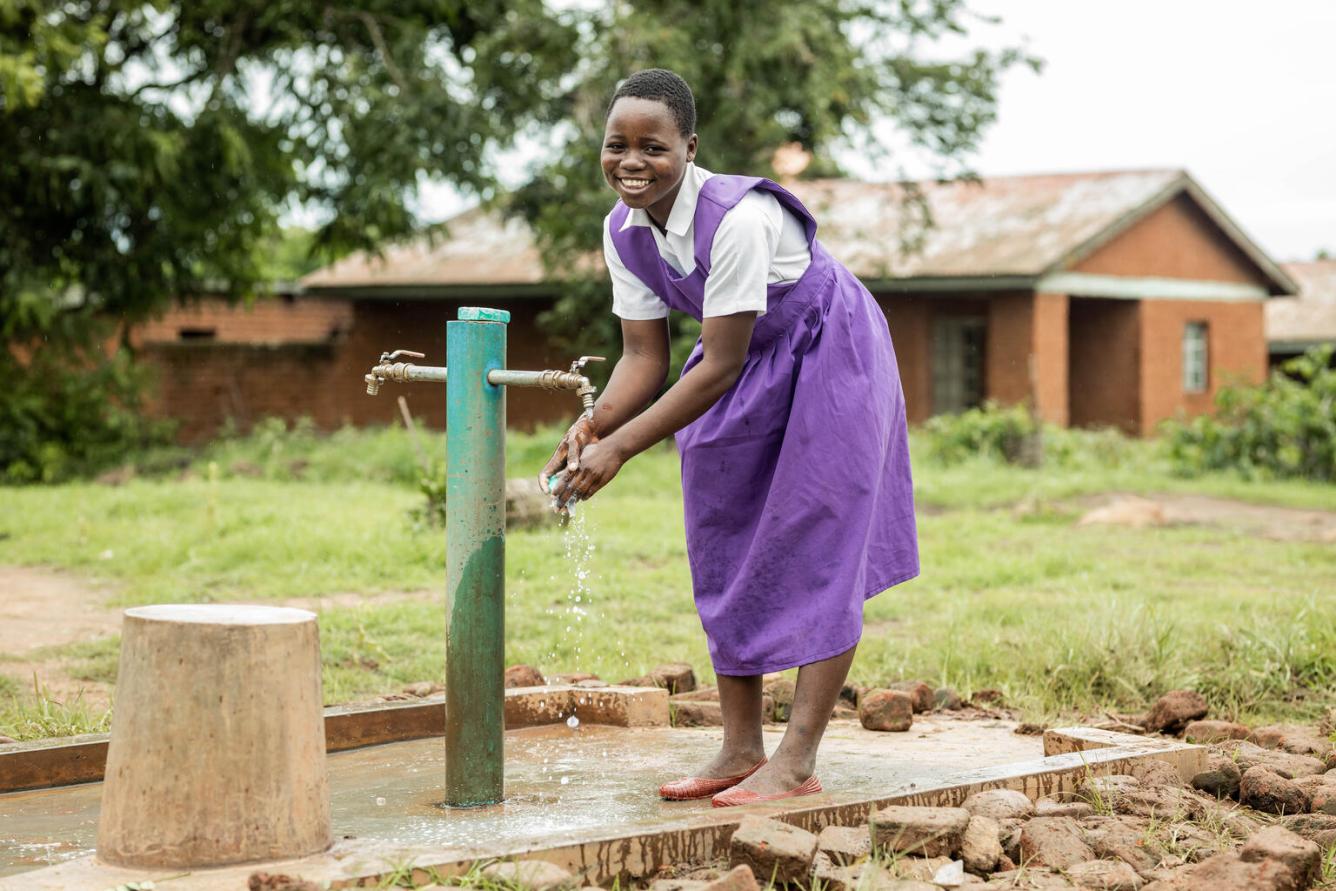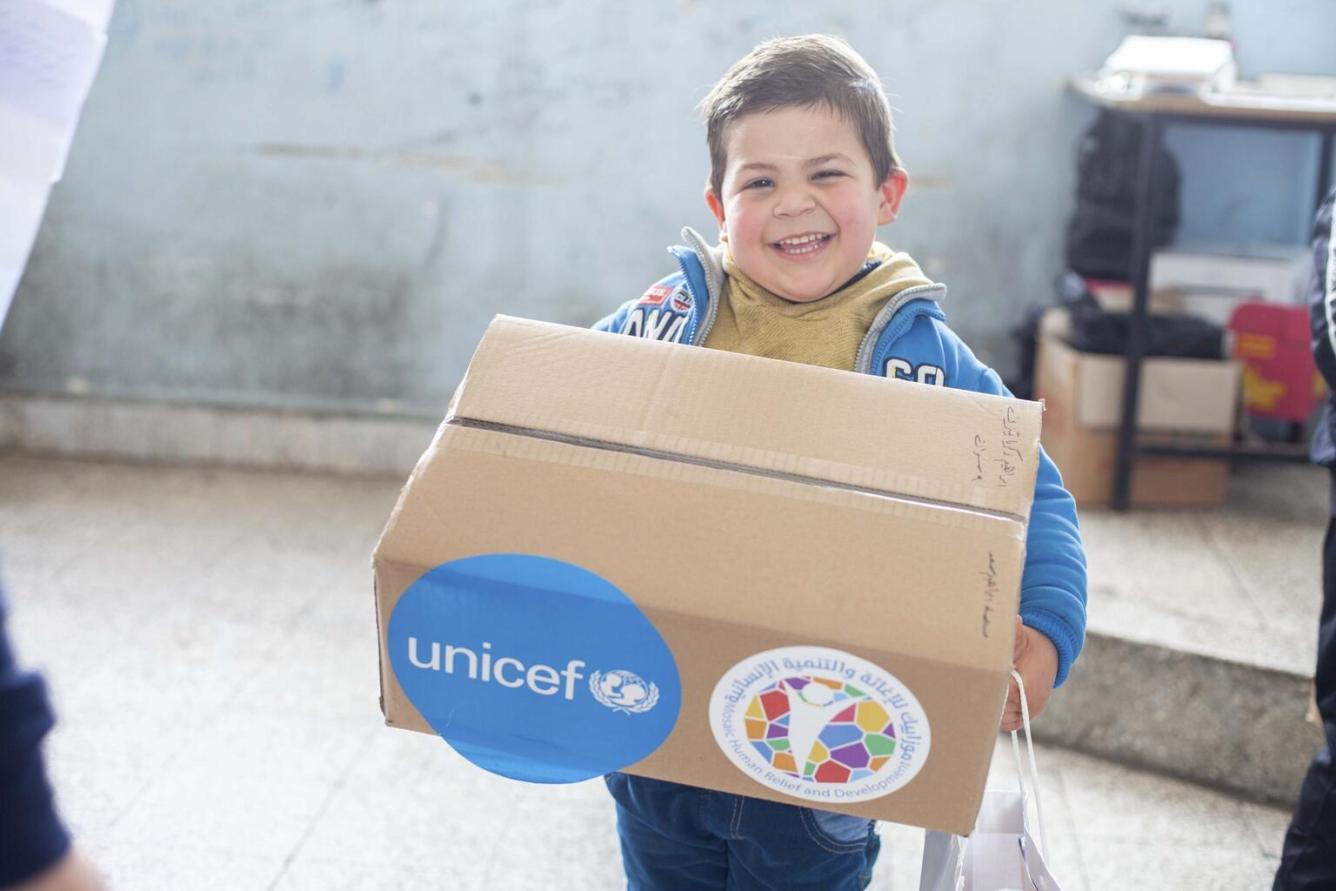2023 Global Results
From conflicts and crises to climate change, children today face more challenges that threaten their rights than ever before. But there is hope. Thanks to the support of our donors and partners in Canada and around the world, in 2023 UNICEF reached millions of children, women and families with essential services and supplies, including in some of the hardest-to-reach places.
See how we are helping build a better world for every child through some of our key global results for 2023.
Core Resources for Results
UNICEF relies on voluntary contributions to uphold our mission of reaching every child.
Core Resources for Results – unrestricted funding to be used flexibly for children wherever and whenever the need is greatest – played a critical role in helping UNICEF achieve results for every child in 2023.
When donors put their trust in UNICEF through unrestricted funding, this enables UNICEF to achieve the greatest impact for children by:
- Ensuring expert staff across all our program areas;
- Scaling up proven solutions and best practices for children globally;
- Leading and pioneering new ideas to respond effectively to complex children’s issues;
- Meeting children’s needs throughout childhood and adolescence;
- Being there before, during and after emergencies.
Thanks to the support of our donors and partners around the globe, the total amount of unrestricted income was US$1.571 billion in 2023 up from US$1.326 billion in 2022.
A third of UNICEF’s unrestricted funds in 2023 were spent on health, nutrition, and immunization programs. The second largest expense went to protect children from violence and exploitation, followed by programs working to provide children with a safe and clean environment.
Read more about Unrestricted Funding
International Programs
With the support of our donors and partners in Canada and around the world, UNICEF achieved the following results for each of our program pillars.
Health and Nutrition
- 132.9 million children were vaccinated against measles, including 32.4 million in humanitarian contexts, and more than 400 million were vaccinated against polio.
- As the largest buyer of vaccines globally, UNICEF delivered 2.79 billion vaccine doses to 105 countries, including the first commercial doses of the malaria vaccine to countries in Africa.
- 2 billion doses of COVID-19 vaccines have been delivered to 146 countries since 2021 through COVAX in the largest-ever global vaccine rollout.
- Through the No Time to Waste Acceleration Plan, 6 million children were reached with severe wasting treatment in the 15 most acutely affected countries, exceeding the targeted 4.5 million.
EDUCATION
- 37.7 million children and adolescents (51 per cent girls) accessed education including 3.1 million children on the move and 17.7 million in emergencies;
- Learning materials reached 31.2 million children (49 per cent girls), including 5.4 million in emergencies;
- The Learning Passport , an innovative mobile online/offline learning platform was launched in seven more countries, reaching a total of 38, with over 6 million registered users and an offline solution for schools with limited to no connectivity;
- 21.9 million adolescents and young people (including 11.3 million girls and 1 million in humanitarian contexts) engaged in civic initiatives across 92 countries, an increase of 5.8 million from 2022.
CHILD PROTECTION
- Parenting programs reached 11.8 million parents and caregivers and 34.7 million children, adolescents, parents and caregivers accessed mental health and psychosocial support services;
- 4.5 million children who experienced violence were provided with health, social work, justice or law enforcement services;
- Programs addressing female genital mutilation reached over 603,000 girls and women in 20 countries;
- 11 million adolescent girls were reached with child marriage prevention and care interventions and 32.4 million people engaged in community dialogues to challenge discriminatory norms.
WATER, SANITATION AND HYGIENE
- Over 7,500 schools and 3,000 healthcare facilities were provided with basic water, sanitation and hygiene services;
- 7.9 million women and adolescent girls were supported with programs to address menstrual health and hygiene;
- UNICEF piloted cyclone insurance in Bangladesh, the Comoros, Fiji, Haiti, Madagascar, Mozambique, Solomon Islands and Vanuatu through the award-winning Today and Tomorrow Initiative , the world’s first child-focused climate change risk financing solution, with the premium cost fully funded via the World Bank Global Risk Financing Facility;
- 5.4 million people used climate-resilient water systems and 4.8 million used climate-resilient sanitation facilities. Sixty-eight countries adopted child-focused climate resilience programs;
- UNICEF expanded support for integrating child-sensitive approaches into government disaster preparedness frameworks, from 50 countries in 2021 to 85 in 2023, though progress was slower at the local level.
Learn more about UNICEF’s work in water, sanitation and hygiene
SOCIAL PROTECTION
- 79 countries had moderately strong or strong social protection systems in 2023 up from 56 in 2021, while 22 had strong systems that can effectively and rapidly respond to humanitarian crises, compared to 17 in 2021;
- Over 106 million households had access to UNICEF-supported cash transfer programs in 2023 while UNICEF reached 2.9 million families in 49 countries with humanitarian cash transfers;
- UNICEF-led evidence or advocacy on child poverty translated into change in 39 countries in 2023, up from 32 in 2021.

Humanitarian Response
In conflict and disaster, children suffer first and suffer most. With over 75 years of experience, UNICEF knows how to reach children in need of urgent support, whether it’s through pre-positioned life-saving emergency supplies, safe spaces, or providing psychosocial support.
UNICEF responded to 412 emergencies in 107 countries in 2023, including violence, conflicts, disasters and disease outbreaks.
With the support of our donors and partners in Canada and around the world, UNICEF achieved the following results in humanitarian settings:
- Clean water and sanitation for 42.4 million people;
- Measles vaccinations for 32.4 million children aged 6 months to 15 years;
- Services for the early detection and treatment of severe wasting and other forms of malnutrition, benefiting 118.6 million children under 5 years of age;
- Access to education for 17.7 million children and adolescents;
- Community-based mental health and psychosocial support services for 13.1 million children, and interventions designed to prevent gender-based violence and support survivors for 23.1 million children and women;
- A total of USD$520 million in Humanitarian cash assistance provided to 2.9 million families;
- Delivery of USD$893.1 million worth of supplies in preparation for or in response to emergencies.
Read UNICEF’s Global Annual Results Report 2023: Humanitarian action

UNICEF Canada’s impact
UNICEF Canada advances UNICEF’s global mission through fundraising, advocacy and awareness in Canada. In 2023, with the help of our supporters across Canada, UNICEF Canada has been able to:
- Mobilize $7.95M for emergencies, including Syria and Türkiye, Ukraine, Afghanistan, Libya and the Gaza and Israel crisis;
- Collaborate with 310 schools, families and community groups to fundraise for the world’s children;
- Supply 442 solar-powered water pumps to provide safe water for children and their communities, with support from our Calgary Water for Life Gala donors;
- Engage 1,650 Canadian youths as U-Reporters on issues that matter to them, like climate change;
- Reach 9,099,608 children with 20,665 life-saving Survival Gifts®.
